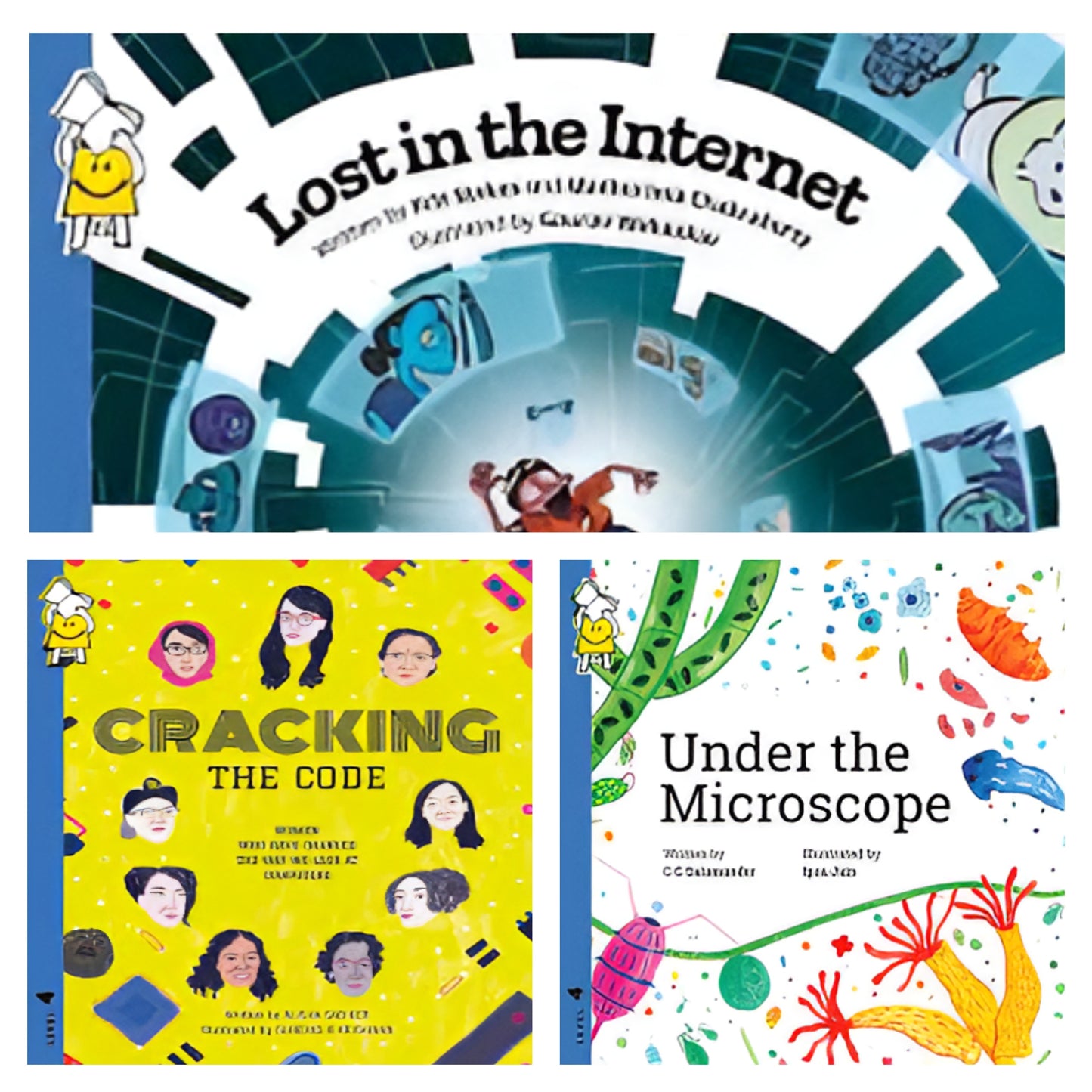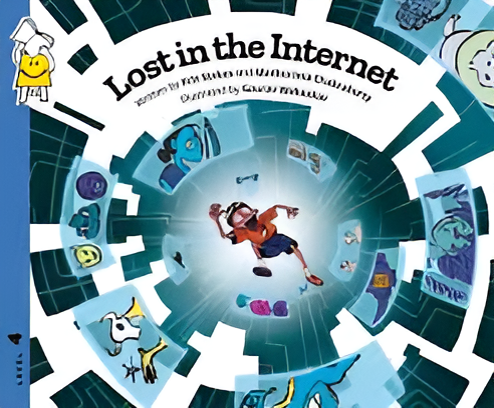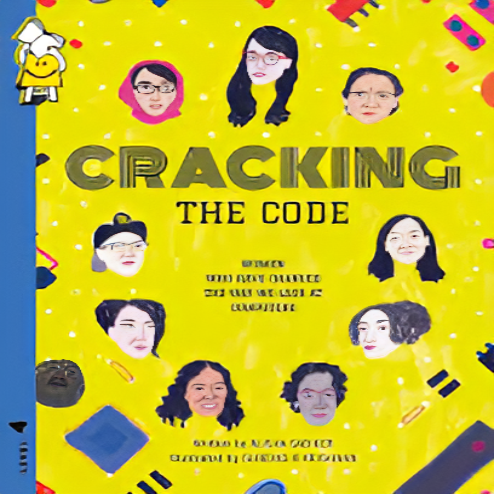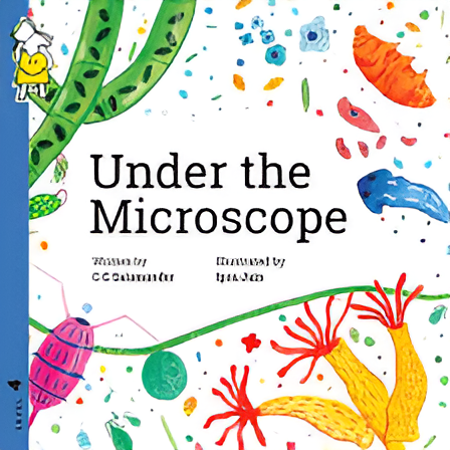Bibliophiles
Pack of 3: Lost in the internet| Cracking the code| Under the microscope
Pack of 3: Lost in the internet| Cracking the code| Under the microscope
- FREE SHIPPING ABOVE Rs. 399
- DISPATCHED IN 1-2 DAYS
- 100% ORIGINAL
Couldn't load pickup availability
Title: Lost in the Internet
ISBN: 978-9351106606
Author: Pratham Books
Summary: What happens when a curious child dives deep into the vast world of the internet? In “Lost in the Internet,” readers follow the adventure of a young explorer who finds themselves navigating the endless possibilities of the digital realm. What kinds of websites and experiences do you think they encounter? Can you guess how they might learn to find their way back home while discovering important lessons about internet safety along the way?
Why is this Book Popular: This engaging story resonates with children and parents alike by addressing a relevant topic in today’s digital age. What do you think makes “Lost in the Internet” appealing to young readers? Perhaps it’s the blend of adventure, humor, and the crucial messages about responsible internet use that keeps them captivated!
Characters:
- The Explorer: Who do you think the main character is? What qualities make them relatable to children? Are they adventurous, curious, or perhaps a bit overwhelmed by the vastness of the internet?
- Digital Friends: What kind of digital characters or avatars might the explorer meet on their journey? How do these characters contribute to the story and help the explorer learn about the internet?
- Parents or Guardians: How do you think the explorer’s family or friends react to their adventure? What guidance do they provide about navigating the online world safely?
Illustrations: What kind of illustrations do you expect to find in “Lost in the Internet”? Can you imagine colorful, imaginative depictions of the digital landscape, filled with websites, games, and friendly avatars? How might these visuals enhance the story and make the internet feel both exciting and accessible?
Book Type: This picture book is aimed at children aged 5-8, making it a great resource for introducing concepts of digital literacy and online safety. How do you think it can serve as an educational tool to help kids understand the importance of being cautious and responsible online?
How This Book Helps Child Development: As the explorer navigates the digital world, what important lessons do you think children might learn? Consider these potential insights:
- Digital Literacy: How might this book teach kids about the internet and its various components in an engaging way?
- Critical Thinking: What skills do you think children will develop as they learn to discern safe online practices from risky ones?
- Emotional Awareness: How does the story help children understand feelings of confusion or excitement when interacting with technology?
Similar Books in This Category:
- “Webster, the Scaredy Spider” by Ruth Brown: How does this book address themes of fear and bravery in the context of the internet?
- “Charlie and the Chocolate Factory” by Roald Dahl: What adventurous elements do these two stories share in their exploration of imaginative worlds?
- “Click, Clack, Moo: Cows That Type” by Doreen Cronin: How does this story incorporate technology and communication in a fun and humorous way?
About the Author: Pratham Books is committed to creating engaging and educational literature for children. What do you think their mission is in producing stories like “Lost in the Internet” that foster curiosity and understanding of the digital world?
Hashtags: #LostInTheInternet #PrathamBooks #ChildrensLiterature #DigitalLiteracy #PictureBooks #KidsRead #InternetSafety #EarlyLearning
Title: Cracking the Code
ISBN: 978-9351104829
Author: Pratham Books
Summary: What happens when a group of friends stumbles upon a mysterious code that needs to be cracked? In “Cracking the Code,” readers join a thrilling adventure as the characters work together to decode messages and uncover secrets. What do you think the code might lead them to? Can you guess what challenges they face and how they use their problem-solving skills to unravel the mystery?
Why is this Book Popular: This exciting story captivates children with its elements of mystery and teamwork. What do you think makes “Cracking the Code” appealing to young readers? Perhaps it’s the engaging plot, the sense of adventure, and the opportunity for kids to think critically and creatively that keeps them hooked!
Characters:
- The Protagonist: Who do you think the main character is? What qualities make them relatable to children? Are they curious, determined, or perhaps a bit mischievous?
- The Friends: How do you think the protagonist’s friends contribute to the story? What unique skills do they bring to the table that help in cracking the code?
- The Antagonist: Is there a character trying to prevent the friends from solving the mystery? How might this challenge add excitement to the story?
Illustrations: What kind of illustrations do you expect to find in “Cracking the Code”? Can you picture dynamic scenes showing the characters working together, brainstorming, and solving puzzles? How might these visuals enhance the narrative and draw readers into the adventure?
Book Type: This chapter book is aimed at children aged 7-10, making it a fantastic resource for promoting critical thinking and collaboration. How do you think it can inspire kids to embrace challenges and work together to solve problems?
How This Book Helps Child Development: As the characters embark on their quest to crack the code, what important lessons do you think children might learn? Consider these potential insights:
- Problem-Solving Skills: How might this book encourage children to think critically and creatively when faced with challenges?
- Teamwork and Collaboration: What can kids learn about the importance of working together and valuing each other’s strengths?
- Persistence: How does the story highlight the value of perseverance when things get tough?
Similar Books in This Category:
- “The Secret Code” by Lisa J. Amstutz: How does this book explore themes of codes and mysteries in a similar way?
- “The Mystery of the Stolen Diamonds” by R. A. S.: What adventurous elements do these two stories share in their quest for solving a mystery?
- “Spy School” by Stuart Gibbs: How does this book incorporate espionage and code-breaking to engage young readers?
About the Author: Pratham Books is dedicated to creating engaging and educational literature for children. What do you think their mission is in producing stories like “Cracking the Code” that foster curiosity and critical thinking?
Hashtags: #CrackingTheCode #PrathamBooks #ChildrensLiterature #MysteryAdventure #PictureBooks #KidsRead #ProblemSolving #EarlyLearning
Title: Under the Microscope
ISBN: 978-9351106526
Author: Pratham Books
Summary: What fascinating worlds await when you look closely at the tiny details of life? In “Under the Microscope,” readers embark on an exploration of the microscopic realm, discovering the wonders hidden from the naked eye. What do you think the main character finds when they peer through the microscope? Can you guess the different microorganisms and objects they might encounter on their journey?
Why is this Book Popular: This engaging book captures children's curiosity about science and the natural world. What do you think makes “Under the Microscope” appealing to young readers? Perhaps it’s the combination of fun illustrations, intriguing facts, and the thrill of exploration that keeps them engaged!
Characters:
- The Explorer: Who do you think the main character is? What qualities make them relatable to children? Are they curious, adventurous, or perhaps a budding scientist?
- Microorganisms: What kind of microscopic characters might they encounter? How do these tiny beings contribute to the story and help the explorer learn more about science?
- Friends or Family: How do the explorer's friends or family support their scientific journey? What role do they play in encouraging curiosity and learning?
Illustrations: What kind of illustrations do you expect to find in “Under the Microscope”? Can you imagine vibrant, detailed images that depict the beauty of the microscopic world, filled with colorful bacteria, cells, and other tiny wonders? How might these visuals enhance the narrative and spark interest in science?
Book Type: This picture book is aimed at children aged 5-8, making it a fantastic resource for introducing scientific concepts and encouraging exploration. How do you think it can serve as an educational tool to inspire kids to learn more about biology and the natural world?
How This Book Helps Child Development: As readers dive into the microscopic world, what important lessons do you think they might learn? Consider these potential insights:
- Scientific Curiosity: How might this book encourage children to ask questions and seek out knowledge about the world around them?
- Observation Skills: What skills do you think children will develop as they learn to observe details and think critically about what they see?
- Appreciation for Nature: How does the story help children understand the importance of even the smallest creatures in our ecosystem?
Similar Books in This Category:
- “The Magic School Bus: Inside Ralphie” by Joanna Cole: How does this book explore the microscopic world in a fun and educational way?
- “A Drop of Water: A Book of Science and Wonder” by Walter Wick: What themes of observation and discovery do these two books share in their approach to science?
- “Micro Monsters” by the National Geographic Kids: How does this book engage children with the fascinating world of microorganisms and biology?
About the Author: Pratham Books is committed to creating engaging and educational literature for children. What do you think their mission is in producing stories like “Under the Microscope” that foster curiosity and a love for science?
Hashtags: #UnderTheMicroscope #PrathamBooks #ChildrensLiterature #ScienceExploration #PictureBooks #KidsRead #MicroscopicWorld #EarlyLearning
Please find the return and cancellation policies , shipping policies and terms and conditions policies.
Share








